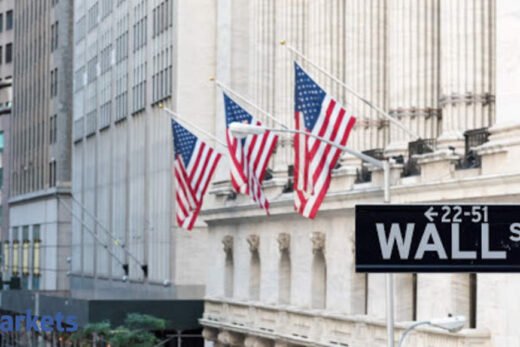The implosion of Archegos Capital Management, a fund that’s been forced to liquidate more than $20 billion worth of stocks, should prompt regulators to ask whether this was another financial calamity that could have been avoided.
Allowing investors to build massive stakes in individual companies using derivatives hidden from public view — and using borrowed funds to do so — puts the onus on a handful of Wall Street prime brokers to police their own risk. Maybe that’s not ideal. Bill Hwang’s investment firm, which ended up having to meet one of the largest margin calls on record, was a disaster waiting to happen.
While there’s plenty we still need to learn about how Archegos structured its whale-like investments — and, crucially, how the various banks that provided the financing were exposed exactly — reportedly Hwang’s firm was behind a series of trades that until recently boosted the shares of ViacomCBS Inc. and Discovery Inc. even as the broader market was declining.
Unfortunately for Hwang, the market was ultimately just too big even for him to bet against. As some of the companies he’d wagered on, including Chinese internet search giant Baidu Inc. and ViacomCBS, sold off, Archegos’s strategy turned sour. Along with Hwang, the firm’s financiers ended up hurting, too.
His fund has about $10 billion in assets and its total positions may have exceeded $50 billion, made possible by financing from some of Wall Street’s most prestigious names, from Goldman Sachs Group Inc. to Morgan Stanley. It was Archegos’s huge concentration in single companies that added to the pain of this particular blow-up.
As they worried about Archegos’s ability to cover its bets, Goldman and Morgan Stanley seized shares that the fund had posted as collateral and offloaded them in blocks. Some of the holdings that were sold represented 10% or more of the outstanding shares in the companies, according to the Wall Street Journal, and such a large-scale unwinding led to unprecedented declines in those stocks. Those sudden drops will have prompted other funds to cut their positions, prompting yet more declines and losses.
The upshot? At least two global securities firms that loaned funds to Archegos — Nomura Holdings Inc. and Credit Suisse Group AG — are facing “significant” losses, while the hit to Goldman for now doesn’t appear to be material. Shares of Credit Suisse and Nomura plunged on Monday. Nomura, which expects a $2 billion loss, was forced to pull a bond sale.
More casualties may yet emerge. But even if the damage were contained to a couple of leading investment banks, whose profit could be wiped out this quarter, there are important lessons for financial stability. The obvious one is the need to shed more light on the types of equity swaps Hwang used to make his massive hidden bets on single companies.
While investors with a stake of 5% or more in a U.S.-listed company usually have to disclose their position, that wasn’t the case with the holdings Archegos created using derivatives, according to my colleagues at Bloomberg News.
Who knows, maybe Hwang’s prime brokers weren’t 100% comfortable with the huge concentration of risk he was sitting on? But they’d have had to somehow gauge how he was running his overall investments by gleaning information from rival market participants. Unless they pushed him, it’s not as if Hwang would necessarily have had to share the extent of his wagers with all of his banks. As it turned out, the heavily concentrated bets in volatile stocks would have made it difficult for the investment banks to protect themselves, given the leverage.
It doesn’t help that an increasingly concentrated securities industry means the risk of a hedge fund imploding is being left in the hands of fewer and fewer Wall Street banks. Capital requirements introduced after the financial crisis have made the business of lending to hedge funds more expensive, leaving only an elite bunch of firms in the business. A market in which crowded trades are financed by a small group can only intensify the threat to financial stability.
Hwang, an ex-hedge fund manager who’d pleaded guilty in the past to insider trading on behalf of a former employer, will have lured Wall Street with the promise of juicy commissions. Even Goldman Sachs, which had resisted the temptation of doing business with him, eventually caved in. But his implosion isn’t just a story of too much leverage. It’s an example of too much leverage mixed with concentration, and a pocket of the market left partly to regulate itself.



